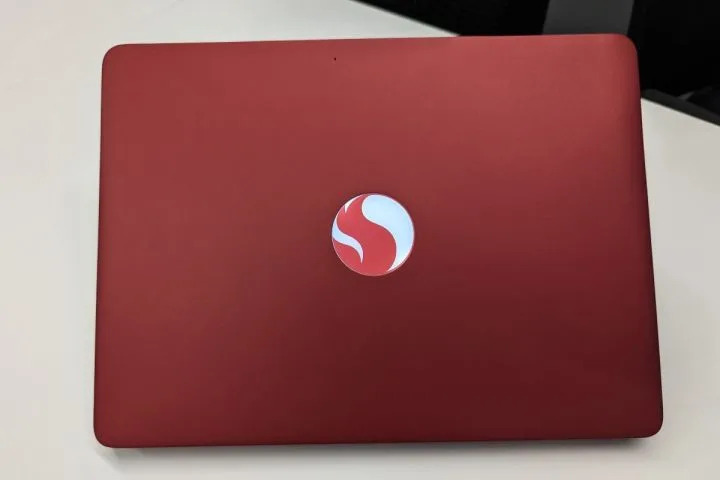
Fionna Agomuoh / DigitalTrends
We were able to check out some demoes and see a dummy unit running the company’s new Snapdragon X Elite PC chip, and Qualcomm is making some big performance claims against Apple’s latest silicon.
The Snapdragon’s Qualcomm Oyron CPU, which was announced in October, was being compared to the Apple M2 Max chip at the time. The brand stated in October that its component can match the peak performance of an ARM-compatible competitor using 30% less power. But since then, the competition has changed.

Fionna Agomuoh / Digital Trends
Apple notably announced its M3 series chips and accompanying laptops a week after Qualcomm announced the Snapdragon X Elite. Performance has been the best point of comparison, especially since Apple has yet to truly delve into the AI space. Qualcomm has compared the CPU to the new M3 chip, similarly claiming that its chip outperforms the leading ARM-compatible competitor for single-threaded CPU performance. Qualcomm also says the Oyron chip is 21% faster than the M3 in multi-core performance. That’s quite the bold claim.
Speaking with Qualcomm, the manufacturer noted that there are bound to be differences in the software experiences, but the hardware remains a consistent metric.
“The experience is not going to be the same because they’re running macOS and we’re running Windows, but in terms of hardware, which is the only thing we can control, it’s good hardware,” Sascha Segan, senior public relations manager told Digital Trends.
In October, Qualcomm also rated its Oyron CPU as faster than the leading x86 CPU on the market. However, Intel has announced its latest 14th-gen Meteor Lake processors as of Thursday. Intel has shared its own specifications for the chips, which also include AI capabilities and various performance statistics, including some really impressive integrated graphics. However, Qualcomm says it has not yet gotten a chance to compare the new series to the Snapdragon X Elite.
Snapdragon-powered PCs are set for mid-2024 availability from vendors including Acer, Asus, Dell, HP, Honor, Lenovo, Microsoft Surface, Samsung, and Mi. Meanwhile, Qualcomm has had staff members using unbranded reference devices internally to positive reviews that note not only the performance improvements, but the long-rumored induction of on-device AI capabilities for AI PCs.
Segan said to take advantage of the first class of Snapdragon-powered PCs, consumers should forgo purchasing laptops now and wait until the middle of next year.
The hype is real, and we won’t have to wait too much longer to see if it lives up to the big claims.

Qualcomm claims its new chips are 21% faster than Apple’s M3
Qualcomm has tested its Oyron CPU in the Snapdragon X Elite chip against Apple's M3 chip and claims that its new chip outperforms the latest ARM-architecture.

